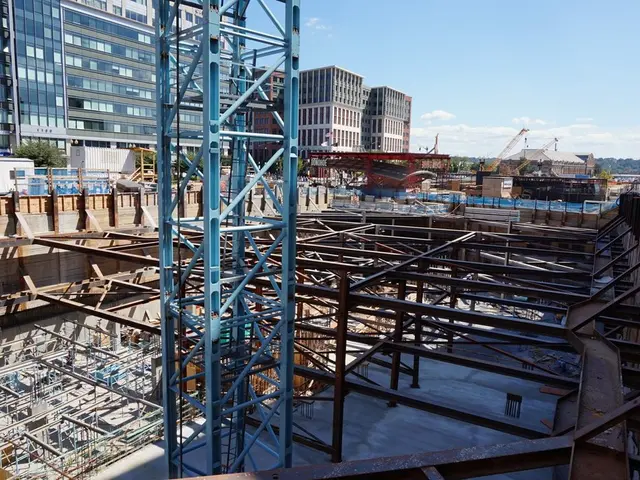United Kingdom Forges Ahead in Energy Shift: Pioneering Carbon Capture, Utilization, and Storage Technologies
UK Government Launches Calls for Evidence to Boost Carbon Capture and Storage Sector
The UK government is actively seeking input from industry, academia, NGOs, and international stakeholders to shape its policy and regulatory frameworks for the Carbon Capture, Utilisation, and Storage (CCUS) sector. Two calls for evidence have been launched, focusing on the evolution of economic regulation for CO2 storage and the development of a future network strategy for CCUS.
CCUS Future Network Strategy Call for Evidence
Published on 6 August 2025 and open until 31 October 2025, the CCUS Future Network Strategy call invites views on how to develop a CO2 transport and storage network strategy that transitions away from heavy government support towards a market-led, commercially sustainable model. The government aims to collect perspectives on economic, technical, commercial, and regulatory factors influencing network development, covering pipeline and non-pipeline transport, onshore and offshore infrastructure. Feedback will guide government policy to enable network optimization, commercial uptake, and new investment to support UK decarbonisation goals.
Evolution of Economic Regulation for CO2 Storage Call for Evidence
Also published on 6 August 2025, this call focuses on future economic regulation for CO2 storage. It discusses whether the current Regulatory Asset Base (RAB) model remains suitable for upcoming CO2 storage projects or if alternative regulatory approaches are needed to attract investment and support sector growth. The government is seeking views on how to balance risk, incentivize investment, and further develop the UK’s CO2 storage sector in line with CCS expansion necessary for net zero by 2050.
Both calls are part of the UK’s broader strategy to scale up CCUS infrastructure and economic viability, recognizing the sector’s potential to support tens of thousands of jobs and billions in economic value by 2050.
Other Developments in the CCUS Sector
The UK government has also approved an expansion of the HyNet carbon capture, utilisation, and storage (CCUS) cluster, which includes six additional projects. The Connah's Quay low-carbon power project and Essar Energy Transition's Hydrogen Production Plant 2 are among the projects included in the expanded cluster. The government, led by Industry Minister Sarah Jones, has highlighted its commitment to making the UK a world leader in carbon capture and storage.
The Department of Energy Security and Net Zero has also launched a call for evidence on the economic regulation of CO2 storage, aiming to incorporate a variety of transport methods to meet increasing demand from CCUS clusters and imported CO2. The call for evidence seeks views on economic regulation and natural monopolies, competition and storage costs, and equity and debt investment.
CSNP Consultation
Ofgem has opened a consultation on its draft Centralised Strategic Network Plan (CSNP) guidance document. The CSNP, to be prepared by the National Energy System Operator, aims to provide an independent, coordinated, and long-term "whole-system" approach to planning the future of electricity, gas, and hydrogen transmission networks in the UK. The consultation seeks views from stakeholders on whether the CSNP guidance accurately reflects the intent of the CSNP policy.
The CSNP aims to facilitate progress towards the UK's long-term grid decarbonisation targets. The projects expected to result from these initiatives are expected to add around £5 billion per year to the UK economy by 2050.
Responses for the calls for evidence must be submitted before the October 31, 2025 deadline for the network strategy call, and the September 1, 2025 deadline for the economic regulation of CO2 storage call. The UK government encourages wide participation in these consultations to ensure a robust and effective policy framework for the CCUS sector.
- In light of the UK government's call for evidence on the Evolution of Economic Regulation for CO2 Storage, it is crucial for the finance industry to provide insight into whether the current Regulatory Asset Base (RAB) model remains suitable for future CO2 storage projects.
- The CCUS Future Network Strategy call for evidence invites the energy industry to share views on economic, technical, commercial, and regulatory factors affecting the development of a CO2 transport and storage network, which could potentially transition from heavy government support towards a market-led, commercially sustainable model.




